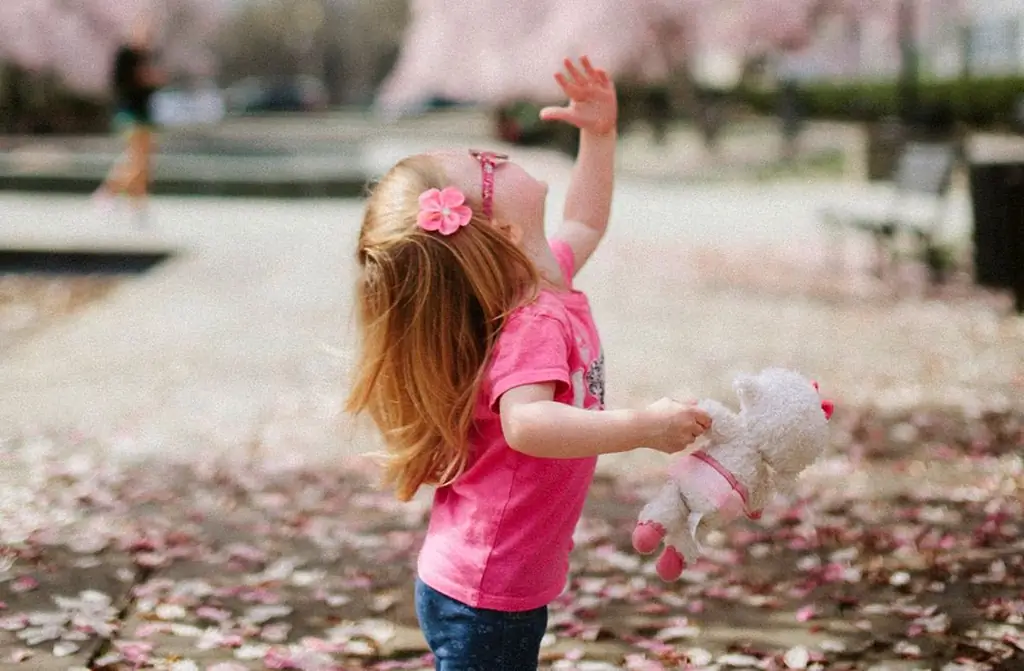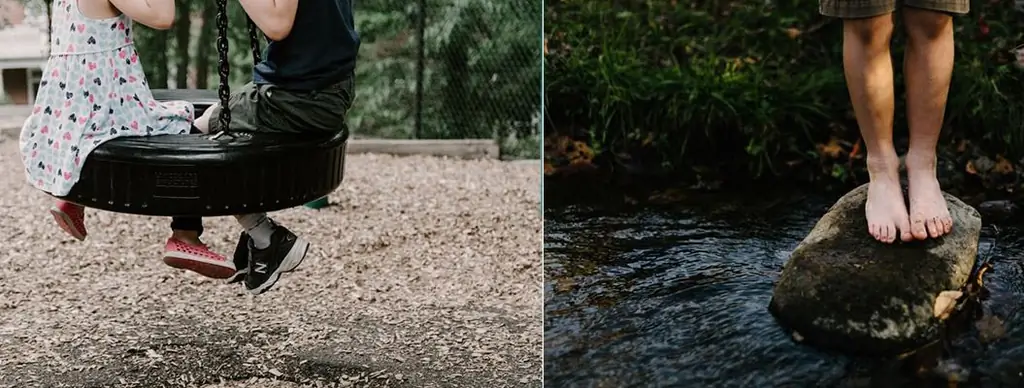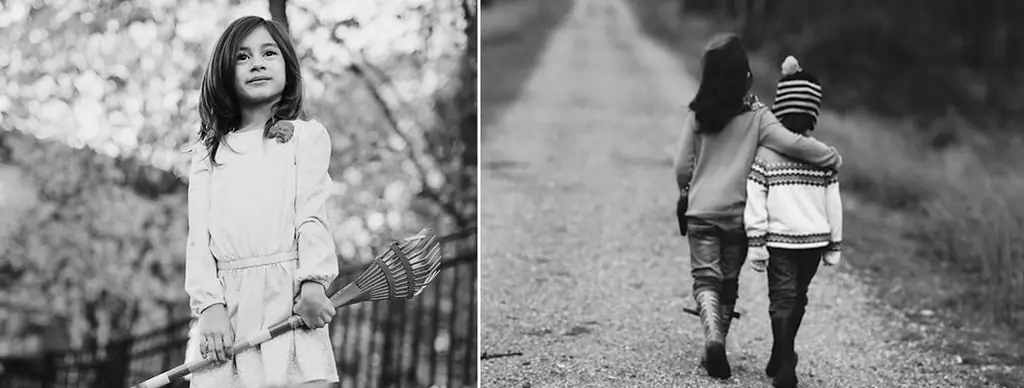- Author Adrian Jeff jeff@psychologosportal.com.
- Public 2023-12-17 05:06.
- Last modified 2025-01-24 14:09.

Who Needs Inclusive Schools?
The main question of the conversation between famous mothers, public figures, heads of charitable foundations and specialized centers is how to bring the practice of inclusive education in the country to a higher quality level. What prevents you from making a leap from fulfilling your obligations for a tick to a sensitive individual approach to children with special needs?
Irina Khakamada, Evelina Bledans, Yulia Peresild and Yegor Kozlovsky took part in the discussion on the topic: "Childhood without borders: education of children with special needs" in the framework of the III Forum of social innovations of the regions.
The main question of the conversation between famous mothers, public figures, heads of charitable foundations and specialized centers is how to bring the practice of inclusive education in the country to a higher quality level. What prevents you from making a leap from fulfilling your obligations for a tick to a sensitive individual approach to children with special needs?
Inclusive education is designed to provide equal opportunities for all kinds of children. The law giving children with developmental disabilities the right to attend regular general education schools was adopted at the end of 2012, but almost all participants in such an unusual educational format, instead of equal opportunities, still receive an equal portion of frustration and stress.
Parties' claims
Mothers of such children face the formalism of educational institutions and government agencies. Irina Khakamada shared her experience of teaching her daughter with Down syndrome: Masha had to just sit in the classroom, but she did not perceive anything and was not friends with anyone at school, although she was very sociable. There were no mechanisms for her inclusion in the team.
“We adjust everyone to the same level, it's easier this way,” Irina notes with regret. Now Masha works, dances, builds relationships and enjoys life. But this is rather thanks to the mother who is fully involved in the development of the child, and not to an impeccably built system.
Educational institutions need a lot of time, money, specially trained personnel to work with "special" children. The process is going on, but not as quickly and smoothly as modern realities require. There are more and more children with different mental and physical developmental features every year, and society is still not ready to “include” them.
We still feel somehow uncomfortable in the presence of people other than ourselves. We are not used to them - they were isolated for a long time in special institutions or at home. We are used to turning away from this problem, not noticing the unnoticed. We know almost nothing about them, but they just want to be happy too. Our own sense of happiness from life directly depends on whether we help them in this or hinder them.
Parents of healthy children oppose inclusion most of all. They fear that children with mental and physical disabilities will pull the teacher's attention to themselves, and the whole class will eventually master less material. Experts participating in the discussion spoke of scientific studies that prove the opposite.
Course on interaction
On the other hand, academic performance in inclusive classrooms is increasing for ordinary children. And this is systematically explainable. At Yuri Burlan's training "System-Vector Psychology", we learn that the human species was able to survive only through the ability to interact, unite in a large group and work collectively. Each member of the group performed that part of the business, which was dictated by his personal innate qualities and is necessary for the survival of all.
Some hunted, others watched the cave, others guarded at night, the fourth united around themselves. Today, social relations have become more complicated, but the basis has remained the same: only being needed by other people, a person feels his life filled with meaning and joy. Children with disabilities push us all to interact more closely.

Julia Peresild told how the foundation creates a creative environment for bringing ordinary and “special” children closer together: they participate in games and theatrical performances together, regularly see each other, play and communicate on social networks.
Foundation employees and volunteers often involve their children in the charitable process. When the daughter of the actress asks if her “special” friend Styopa can come to her birthday, for Julia this is the best indicator of the right direction of work.
“Another question is that this is still a manual method. There are no schemes that would make inclusion ubiquitous tomorrow. And you can't do that. Precisely, accurately, but be sure to move forward,”adds the founder of the charitable foundation to help children with organic lesions of the central nervous system.
In a few inclusive classrooms, learning strategies are used, aimed at constant work with peers, joint group projects, and co-creation. While this is often neglected in a regular classroom, there is simply no other way in an inclusive class. To educate the feelings of children, to expand their ideas about the difference in people and how to find common ground in these conditions - this improves the general atmosphere in the class and the evaluation afterwards. The training "System-vector psychology" by Yuri Burlan gives precise recommendations on how to build the educational process taking into account the mental characteristics of children. But the transition to a new society is perceived as exciting, although there is nothing to lose.
Don't turn away anymore
The modern school is undergoing a crisis even without inclusion: bullying, widespread obscenities, boredom, aggression, stereotyped approaches and indifference at all levels. In such conditions, no child can develop adequately. Observing manifestations of physical or psychological aggression, the child loses a sense of security and safety. And if he himself is subjected to violence, this nullifies the educational process. Fear does not allow to develop and open up. In such a team, both victims and bully are deprived of the opportunity to develop the main human skill - the ability to negotiate.
If adults do not direct the children's team into the channel of cooperation, they unite like an animal, attacking the weak. An ordinary child, being a victim in the classroom, can endure and suffer for a long time in silence. The school does not interfere, the parents either do not know or advise to give change. All children in such a team grow up unhappy, not having learned to build relationships in a group. But the issue is not fundamentally resolved.
In online discussions on the topic of teaching children with special needs, one can come across the following comments from adults: “You don’t hit someone like that, you won’t calm down.”
Realizing that a child who is somehow very different from the rest is the first candidate for the role of a victim, it will not be possible to ignore this problem. The school must guarantee the safety of all children and stop aggression in the bud. Then the parents of ordinary children will gradually turn towards cooperation. Ordinary children will not copy this unthinkable level of aggression and rejection of adults if they study in a well-organized group with the "special". They begin to notice, analyze how difficult it is for such a child to integrate into their number, and sincerely strive to help him.
Russian Reporter shared the story of when inclusive education benefited all parties. The boy with autism spectrum disorder did not say anything but "s-s-s." Peers at first shunned the unusual child at school, but gradually began to take an interest in him, transfer books to him through a tutor, and then personally. After a while, the boy spoke. This is a joint result of the concern of teachers, parents and classmates. Imagine how much more united the team becomes, which could create such a miracle together!
From the stress that “special” children bring to the educational process, an environment is born that is healing for all its participants. Not to turn away, as we are accustomed to, but to interact, not to get irritated, but to look for something in common, not to tease, but to sympathize, to work with the soul. Children learn to be needed by each other, which means they acquire the ability to experience a wider range of joy from life.

It is not children with developmental disabilities who brought the pre-existing difficulties to schools, but they are the ones who brighter mark our archetypal intolerance to each other and can set the course for cooperation. Provided that we support.
From the parental heart, indifference spreads to society. Notable and beloved artists and public figures, owners of the visual vector, pick up a request for help and look for a solution. Charitable foundations, volunteer projects, festivals, conferences, forums encourage us all to pay attention to another person who needs our attention and understanding. The training "System-vector psychology" by Yuri Burlan allows you to choose a key for each child, see its peculiarity and help develop in the children's team.
Knowledge is not a guarantee of happiness in today's rapidly changing world. The guarantee is the ability to interact, adapt to different conditions, negotiate, feel the other. Time to turn on.






